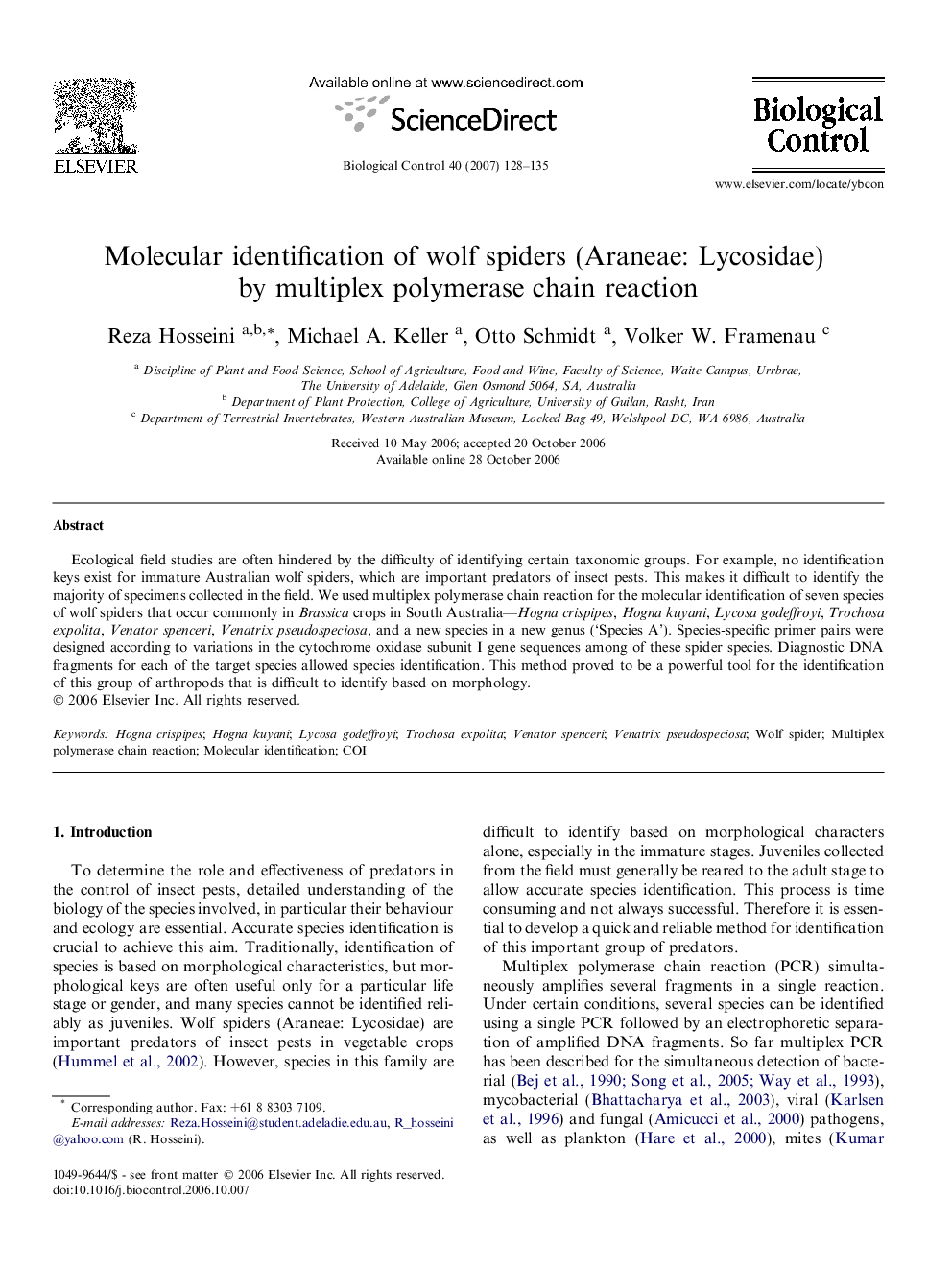| Article ID | Journal | Published Year | Pages | File Type |
|---|---|---|---|---|
| 4505310 | Biological Control | 2007 | 8 Pages |
Ecological field studies are often hindered by the difficulty of identifying certain taxonomic groups. For example, no identification keys exist for immature Australian wolf spiders, which are important predators of insect pests. This makes it difficult to identify the majority of specimens collected in the field. We used multiplex polymerase chain reaction for the molecular identification of seven species of wolf spiders that occur commonly in Brassica crops in South Australia—Hogna crispipes, Hogna kuyani, Lycosa godeffroyi, Trochosa expolita, Venator spenceri, Venatrix pseudospeciosa, and a new species in a new genus (‘Species A’). Species-specific primer pairs were designed according to variations in the cytochrome oxidase subunit I gene sequences among of these spider species. Diagnostic DNA fragments for each of the target species allowed species identification. This method proved to be a powerful tool for the identification of this group of arthropods that is difficult to identify based on morphology.
